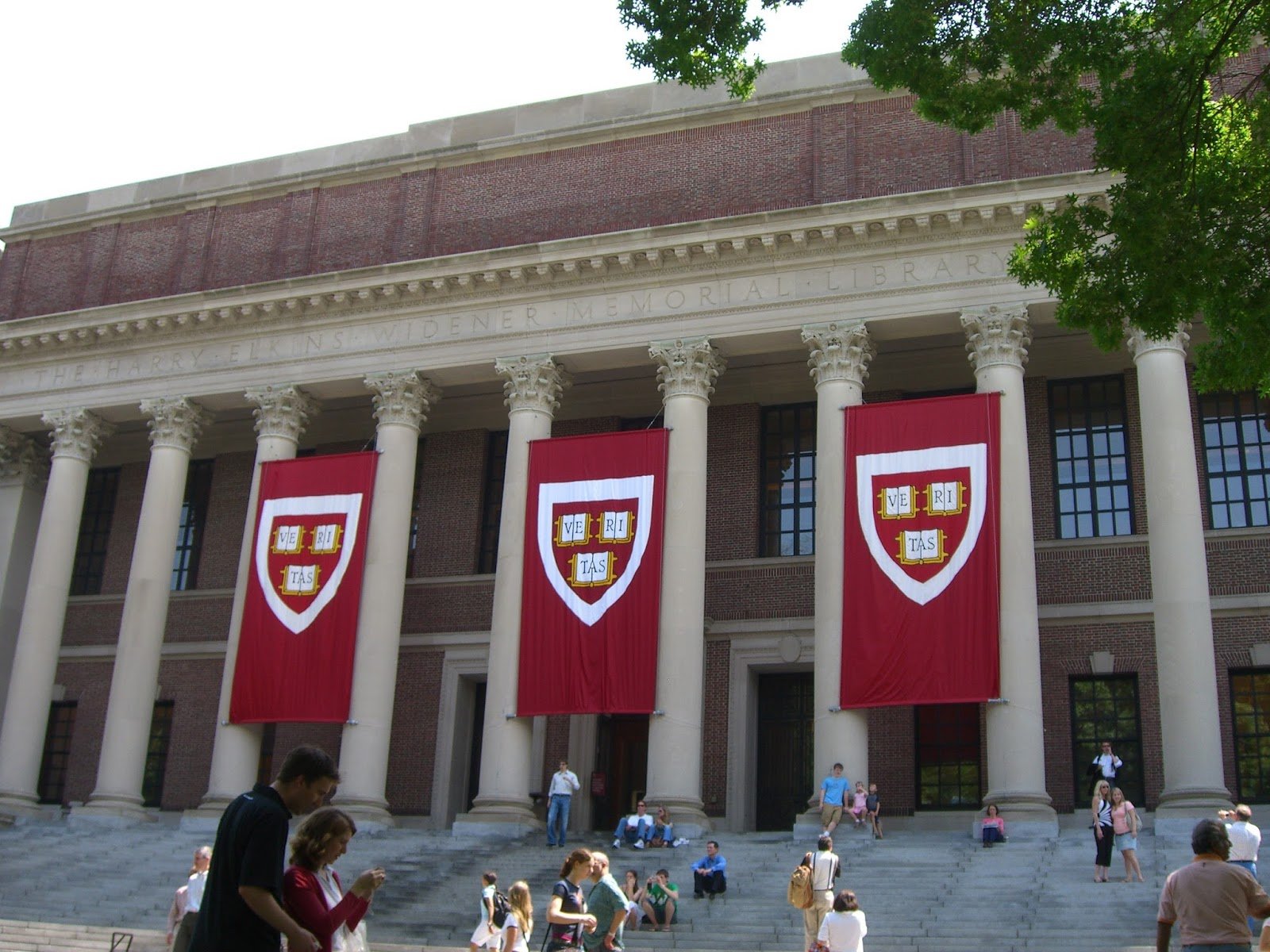Earning admission to Harvard University is often seen as hitting the college admissions jackpot. Despite how competitive the admissions process is, each year, thousands of students worldwide throw their hats into the ring, hoping to snag a seat at this prestigious institution. If you’re one of those students, you’re in the right place. We’ll break down Harvard’s 2025 acceptance rate, historical statistics, admissions requirements, and expert tips to set you up for success. Let’s get into it!
Table of Contents:
- How Competitive is Harvard? The 2025 Harvard Acceptance Rate
- What Harvard Looks for in Students (Beyond the Basics)
- Harvard Admission Requirements
- 5 Key Tips to Help You Get into Harvard
- Final Thoughts: Should You Apply to Harvard?
Key Takeaways
- Harvard’s 2025 acceptance rate is 3.6%, making it one of the most selective colleges in the world. Harvard’s record-low acceptance rate is a direct result of high applicant interest, shifts in admission requirements, and limited enrollment availability.
- Successful applicants must demonstrate more than just academic excellence. Students should prioritize high-impact extracurriculars, authentic storytelling, and a consistent personal narrative across their entire application.
How Competitive is Harvard? The 2025 Harvard Acceptance Rate
If you’re reading this, you’re likely already familiar with the selectivity at Harvard and other Ivy League institutions. That said, over the last few years, Harvard shocked the public by dropping acceptance rates to record-low numbers. Harvard’s acceptance rate for 2025 is sitting at approximately 3.6%, enrolling only 1,970 of the 54,000 who applied. While it’s no secret that it’s challenging to get into Harvard, let’s look at historical trends to paint a clearer picture.
|
Year |
Number of Applicants |
Accepted Students |
Admit Rate |
|
2024-2025 |
54,008 |
1,970 |
3.6% |
|
2023-2024 |
56,937 |
1,965 |
3.4% |
|
2022-2023 |
61,221 |
1,984 |
3.2% |
|
2021-2022 |
57,786 |
2,311 |
3.9% |
|
2020-2021 |
40,248 |
2,015 |
5% |
If the numbers tell us one thing, it’s that the admissions process at Harvard is the most competitive it’s ever been in recent years. Now is the perfect time to discuss why it’s gotten so selective and how this impacts future applicants.
Brand Recognition and Legacy
Harvard has always maintained a strong reputation, inside and outside the college admissions landscape. It’s often regarded as one of the top institutions for academic excellence and influence. Now, what would happen if Harvard suddenly increased their acceptance rate to 50%? First, there would likely be public outrage from former applicants. Second, and more importantly, the public would begin to question their status and prestige. In order to maintain their brand of being a leader in the college admissions space, they must maintain that exclusivity.
COVID Accommodations and Test-Optional Policies
It’s no surprise that Harvard (and many other highly selective colleges) experienced a surge in applications during the COVID-19 pandemic. As institutions re-evaluated their admissions processes, many adopted temporary test-optional policies, removing standardized testing as a barrier. This shift expanded access to a broader range of applicants, including students who might have previously been discouraged from applying due to lower SAT or ACT scores. The result? A sharp increase in applications and even more intense competition for a limited number of spots.
Limited Seats at the Table
The biggest contributor to Harvard’s selectivity in recent years is due to the lack of available seats at the school. Despite Harvard’s admit rates dropping from 5% to 3.2% between 2021 and 2023, it’s only a difference of 31 students. The reality is, the majority of the students applying to Harvard are qualified to be admitted, and many of these bright and exceptional students are turned away due to space constraints.
What Harvard Looks for in a Student (Beyond the Basics)
Getting into Harvard isn’t just about being “smart,” it’s about being original, strategic, and an asset to their campus. Here’s what Harvard has to say:
“While academic accomplishment is important, the Admissions Committee considers many other factors—strong personal qualities, special talents or excellences of all kinds, perspectives formed by unusual personal circumstances, and the ability to take advantage of available resources and opportunities.”
In the next section, we’ll discuss the academic requirements set out by Harvard, but for now, if you’re looking to set yourself apart from other qualified applicants, focus on the following:
- Prioritize intellectual vitality and rigor over perfect grades.
- Showcase leadership qualities in unique ways. You don’t need a title to be a leader!
- Align your application with Harvard’s institutional values and mission.
- Focus on depth over breadth in your extracurricular activities.
Harvard Admissions Requirements
All interested applicants will need to apply to Harvard through the Common App or the Coalition Application. When doing so, they will be expected to complete each section of the application and submit:
- Academic high school transcripts (electronic)
- A list of extracurricular activities and awards
- Personal Statement and supplemental essay responses
- Standardized test scores
- Two teacher recommendation letters
- Supplemental information depending on your selected majors (portfolios, videos, etc.)
Academics
To identify where you sit in the wider applicant pool, use the following table of Harvard’s academic statistics as your trusted guide:
|
Academic Requirement |
Harvard Average |
|
Grade point average (GPA) |
4.2 |
|
SAT score |
1550 |
|
ACT score |
35 |
As you look at these numbers, do remember that Harvard is one of the many colleges that practice a holistic approach to evaluating applicants. In other words, they review every application component when considering if a student will or will not be admitted to their college. Knowing this, students shouldn’t feel discouraged from applying to Harvard if their SAT score or their GPA is less than the reported average.
Extracurricular Activities and Awards
While there is no specific extracurricular requirement set out by Harvard, the Common App does allow students to list up to 10 extracurricular activities and 6 academic awards. Most students applying to highly selective colleges have anywhere between 7 and 10 extracurricular activities.
Building a Harvard-worthy extracurricular profile starts with impact and leadership. Impact and leadership come in many forms, and as we mentioned previously, they don’t always come with a fancy title. To add depth to your activities list, remember this:
- Harvard is looking for trailblazers and the next generation of influential leaders. How can you demonstrate that level of leadership in your community?
- Harvard is known for its academic excellence and renowned scholars. How do your activities broaden your academic interests?
- Harvard is looking to find students who add diversity and unique perspectives to their incoming class. What have you explored in high school, and how will being admitted to Harvard expand that curiosity and passion?
Harvard Essays and Supplementals
Your Common App personal essay will be submitted to every college on your list (including Harvard, if you choose). The Harvard supplemental essays, on the other hand, are unique to Harvard and will only be read by a Harvard admissions reader. For the 2024-2025 application cycle, Harvard released five 100-150-word supplemental essay prompts students must answer. Those included:
- Harvard has long recognized the importance of enrolling a diverse student body. How will the life experiences that shape who you are today enable you to contribute to Harvard?
- Describe a time when you strongly disagreed with someone about an idea or issue. How did you communicate or engage with this person? What did you learn from this experience?
- Briefly describe any of your extracurricular activities, employment experience, travel, or family responsibilities that have shaped who you are.
- How do you hope to use your Harvard education in the future?
- Top 3 things your roommates might like to know about you.
These short-answer prompts may be brief, but they carry significant weight in the admissions process. Each one gives Harvard a different lens through which to view you, as a student, community member, classmate, and future roommate. Your goal with these essays isn’t to repeat information from other sections of your application, but to show your ability to self-reflect and think critically about your experiences and future goals. Make every word count!
5 Key Tips to Help You Get into Harvard
1. Prioritize Restrictive Early Action
Harvard’s Restrictive Early Action (REA) plan gives you the chance to apply early without the binding commitment of Early Decision. While Harvard emphasizes that REA applicants are not prioritized, acceptance rates are slightly higher for early applicants than those applying during Regular Decision.
Applying early signals confidence, commitment, and a strong interest in the college. Just make sure your application is polished in advance of the early November deadline.
Related: Early Action vs. Early Decision vs. Regular Decision
2. Start Building Your College Application Early
Building off the last point, be sure to give yourself enough time to thoughtfully craft your Harvard application. The best college applications (not just Harvard ones) are not rushed. For competitive colleges, students should start thinking about their narrative as early as grade 9 and begin working on their Harvard essays the summer before grade 12.
By starting early, you give yourself enough time to address any gaps in your application and strengthen every component before college application deadlines.
Related: College Application Timeline: How to Apply to College
3. Don’t Neglect Teacher Recommendations
A glowing, detailed recommendation letter from a teacher who knows you well can go a long way in the admission process. Build relationships with your teachers and mentors early, and choose a recommender who can speak to your character, growth, and intellect.
4. Build Out 1-2 Capstone Projects Early
A capstone (or passion) project is an extracurricular commitment that allows students to apply their learning to real-world experiences. Capstone projects might include entrepreneurial endeavors, published research papers, building a technological system, or solving a problem in your community.
What makes a capstone project stand out is its innovation, impact, and depth. No matter what capstone project a student selects, it needs to show initiative, effort, and personal investment. Brainstorming potential projects early will give you enough time to explore multiple avenues, succeed (and fail), and reflect on your journey. This offers more insight into who you are, what ambitions you have, and what you hope to bring to Harvard’s campus.
5. Build a Balanced College List
Even if Harvard is your dream college, consider the number of colleges you hope to apply to and build a balanced list of safety, target, and reach schools. This reduces the pressure tremendously and ensures you have great options regardless of the Harvard outcome.
Final Thoughts: Should You Apply to Harvard?
Harvard is possible, but it’s not everything. If Harvard is your dream college, be sure to put our tips into action and plan early. Great college applications aren’t built overnight, and a Harvard-worthy application requires a lot of attention and care. To learn more about our Ivy League counseling, schedule your free consultation with us today.
For students still considering if Harvard is the right school for you, reflect on personal fit more than prestige and status. Here you’ll learn if Harvard is the next step in your academic journey.
About Us: With more than twenty-six years of experience, Collegewise counselors and tutors are at the forefront of the ever-evolving admissions landscape. Our work has always centered on you: the family. And just like we’ve always done, we look for ways for your student to be their best self - whether in the classroom, the applications, or in the right-fit college environment. Our range of counseling, test prep, academic tutoring, and essay management, all with the support of our proprietary platform, lead to 4x higher than average admissions rates.



/summer%20planning%20guide.png?width=600&height=200&name=summer%20planning%20guide.png)
/college%20essay%20guide%20cta.png?width=600&height=200&name=college%20essay%20guide%20cta.png)
/Blog%20CTAs%20(1)-2.png?width=600&height=200&name=Blog%20CTAs%20(1)-2.png)
/Webinar%20blog%20CTA%20(1).png?width=600&height=200&name=Webinar%20blog%20CTA%20(1).png)



